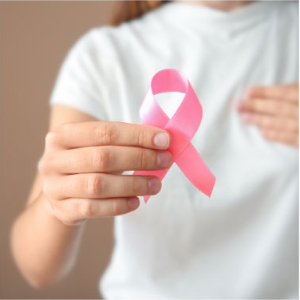Last Week, we spotlighted Turkish Deli Bal ‘Mad’ Honey. It has unique toxic effects prized in its home region for millenia. Now, we hear that another exotic old-world food could have medicinal proper-ties. Manuka Honey may reduce or even prevent breast cancer…
What is it?
Manuka honey is produced exclusively in one specific region of New Zealand. There, the bees feast upon the nectar of the blossoms of the manuka tea tree, while pollinating the plants.
The resulting honey has long been known to, “exhibit antimicrobial, antioxidant, and tissue protect-ive/healing activities,” the report of a new lab study relates. The UCLA team behind the study also found it’s, “rich in flavonoids, phytochemicals, complex carbohydrates, vitamins, amino acids, and minerals,” and “contains other specific phytochemical factors that may potentiate its biological act-ivity,” including natural phytoestrogens not found in other forms of honey.
As with all honeys, its the stuff the host plant exudes into its nectar and pollen that’s responsible for any beneficial or medicinal effects. When the bees place the nectar into the honey comb, the water in it evaporates and the beneficial ingredients become more concentrated. The rest of the stuff bees come in contact with and carry back to their hive is glucose – sugar.
What they found
The preliminary study led by senior author, noted oncologist Dr. Richard Pietras revealed, “Manuka honey significantly reduced tumor growth in mice with ER-positive breast cancer cells by 84% without affecting normal breast cells or causing major side effects.”
Furthermore, there were no apparent negative effects on normal breast tissue cells. And no observed negative side effects.
Specifically:
- Higher concentrations of Manuka honey led to a greater reduction in cancer cell growth.
- Manuka honey reduced levels of signaling pathways […] involved in tumor cell growth and survival.
- Manuka honey reduced the proliferation of cancer cells but did not affect the growth of normal human mammary […] cells, indicating it might target cancer cells specifically.
- Manuka honey induced […] cell death of breast cancer cells.
- Manuka honey enhanced the effectiveness of existing treatments such as tamoxifen, a commonly used antiestrogen drug in ER-positive breast cancer therapy, when used to together.
The takeaway
“The findings provide hope for the development of a natural, less toxic alternative to traditional chemotherapy,” Dr. Diana Marquez-Garban, first author on the study, noted.
“Although more research is necessary to fully understand the benefits of natural compounds in cancer therapy, this study establishes a strong foundation for further exploration in this area.”
My take
As with all food-based folk cures and traditional treatments, there’s plenty of anecdotal evidence – centuries of observation by the folks who live in the region whence it comes – that this honey is in no way harmful in normal, food use ‘doses’.
So, doctors say, you can go ahead and incorporate it in your normal daily diet, if you feel it could help you in your cancer ‘context’. Whether you’re under treatment, or just want to try to lower your risk of developing the breast cancers it targets…
The only drawbacks in the Manuka Honey story are its scarcity and price. I googled it just now, and the cheapest price I found – buying direct from the beekeeper in New Zealand (which ensures the stuff is pure, authentic and undiluted) was (Euro)€143.21 / (US)$151.32 plus shipping for a 250 g / 8.8 oz. jar.
So, as my dear departed birth Dad used to say, “You pays your money and you takes your chance…” But with the UCLA study backing the benfits, and the New Zealand government guaranteeing its authenticity and potency, I’d feel pretty confident it’s the real deal…
~ Maggie J.


